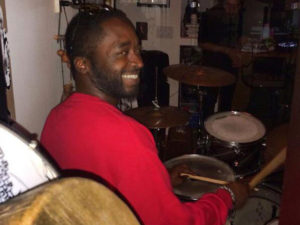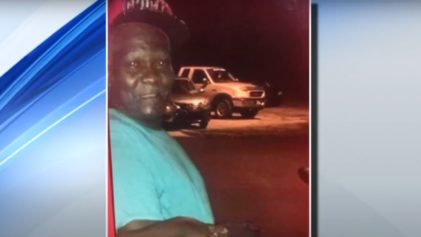
Corey Jones, 31, was an inspector and assistant property manager for the Delray Beach Housing Authority, and was a member of several bands. He was a graduate of the University of Akron with degrees in business administration and music, and mentored for a Black youth organization called My Brothers Keeper.
This past Sunday, Jones called his fellow band member, Mathew Huntsberger, an hour after finishing a gig with their group, Future Prezidents. Jones and his SUV were stranded north of West Palm Beach, Florida on Interstate 95, according to the Washington Post. Huntsberger called roadside assistance for his friend, and 45 minutes later, Jones was shot killed by a police officer.
In a statement released Monday, the Palm Beach Gardens Police Department said officer Nouman Raja was in plainclothes and driving an unmarked car. Raja stopped to investigate what he thought was an abandoned vehicle on an I-95 exit ramp.
“As the officer exited his vehicle, he was suddenly confronted by an armed subject,” the department said in a statement. “As a result of the confrontation, the officer discharged his firearm, resulting in the death of the subject.”
“They’re saying he was armed, but I don’t know if I believe it,” said Huntsberger, describing Jones as a really mellow, church-going guy. “Of course they’re going to say that. If I was there, maybe it’s a different situation. I just don’t know what happened.”
Supposing Jones, who was stranded on the road did have a weapon, would he have the right to use his gun against a plainclothes man in an unmarked car approaching him? And in the mind of this innocent Black man, why should he not assume he is being chased by a gang or hate group member, terrorist, vigilante, or some other sort of criminal?
This latest tragedy comes amid reports that a man killed by an off-duty officer at a car wash in Richmond, Virginia last weekend was unarmed. According to the Chesterfield County police department, as reported by the Guardian, Paterson Brown Jr., 18, was shot Saturday at a gas station by an officer who was having his car washed there, and died after being taken to the hospital. According to police, Brown got into the unnamed officer’s vehicle and drove it out of the washing stall.
Meanwhile, in a high-profile incident last month, Black tennis star James Blake was tackled by an off-duty officer in New York City and handcuffed in a sting operation gone wrong. Police reportedly mistook Blake, who was waiting outside a Manhattan hotel to be taken to the U.S. Open tennis tournament, for a criminal. After the officer, who is white, tackled Blake, four other white officers joined in.
On a daily basis, Black people have police to fear as the targets of racial profiling and excessive force, but they also face racial terrorism and vigilante violence. This speaks to the vulnerability of Black people as sitting ducks, perceived as a criminal element on the one hand, and prey that must be tracked, hunted, subdued and neutralized on the other. Moreover, Black police officers are not immune from this process of criminalization.
For example, in 2009 in East Harlem, New York, an off-duty rookie officer named Omar Edwards was fatally shot by a white officer who mistook him for a criminal. Edwards was pursuing a suspected car thief with his gun drawn. In 2005, former Chicago cop Howard Morgan was working as a railroad detective when he was stopped by four police officers for a traffic violation. Morgan, who was authorized to carry a gun and had one, was shot 28 times, including 21 in the back, and miraculously survived the barrage of bullets. Yet, he was found guilty of attempted murder.
As Reuters reported in December 2014, Black cops fear fear white officers. Out of a group of 25 Black male NYPD officers, including 15 retired, all but one said that when they are off duty and not in uniform, they had been victims of racial profiling.
“The officers said this included being pulled over for no reason, having their heads slammed against their cars, getting guns brandished in their faces, being thrown into prison vans and experiencing stop and frisks while shopping,” Reuters reported.
Most had been pulled over numerous times while driving, and five had guns pulled on them. Desmond Blaize, a retired sergeant in the 41st Precinct in the Bronx, said he was stopped while jogging in Brooklyn’s upmarket Prospect Park.
“I had my ID on me so it didn’t escalate,” said Blaize, who sued the NYPD for racial harassment on the job. “But what’s suspicious about a jogger? In jogging clothes?”
According to a 2014 report from ProPublica based on two years of federal data on police shootings, young Black men are 21 times more likely to be shot by the police than their white counterparts.


